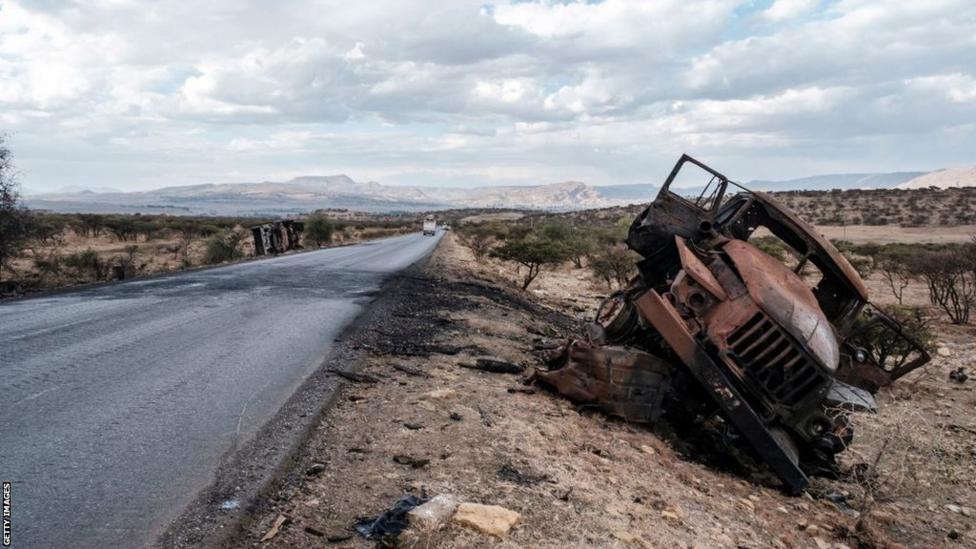The bloody two-year conflict between Ethiopia’s government and forces in the region began in November 2020 and led to thousands of deaths.
“We were given a list containing every name,” said Kidane Teklehaimanot, the Tigray Athletics Federation president.
“Seventy-six athletes who represented this nation’s future perished. Two coaches and two officials also died.”
The conflict caused famine-like conditions and ended in November last year after the Ethiopian government and the Tigray People’s Liberation Front signed a peace deal brokered by the African Union.
Teklehaimanot said many of the athletes were promising youth competitors who were involved in regional, national, and international competitions.
The victims were largely civilians killed by soldiers.
“It’s possible that some of them joined the armed resistance after the war of annihilation against Tigray,” added Teklehaimanot.
“If you look at the athletes who are representing their country (Ethiopia) in international competitions today, they are the ones who left Tigray before the war.
“Tigray had good, promising athletes. We held competitions to find athletes some time ago but we couldn’t get as many as we wanted. We lost those who had the best potential.”
Gudaf Tsegay recalls on how the Tigray conflict disrupted her attempt at a world record
Alongside a significant wider decline in sports activities, damage of more than 30 million birr (£427,600) was caused to an athletics centre in the town of Maichew, Teklehaimanot estimated.
“Nearly all of Tigray’s sporting facilities have been destroyed on an institutional level,” he said. “Heavy weaponry has shattered its buildings.”
Reigning 10,000m world champion Gudaf Tsegay and her predecessor Letesenbet Gidey are among the Tigrayan athletes representing Ethiopia on the world stage.
Last year’s marathon world champion Gotytom Gebreslase, 2023 World Road Running Championships 5k winner Hagos Gebrhiwet and 5k road race world record holder Berihu Aregawi are also notable athletes from the region.
